Iran Universities May Go Virtual Amid Protest Fears
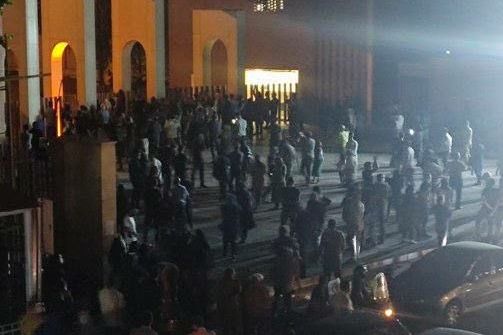
The Iranian regime is mulling over holding university lectures online to reduce chances of campus protests on the first anniversary of Women, Life, Freedom movement.

The Iranian regime is mulling over holding university lectures online to reduce chances of campus protests on the first anniversary of Women, Life, Freedom movement.
The government is weighing online classes for the first 10 days of the upcoming academic year in September, coinciding with the death of Mahsa Amini in hijab police custody that triggered the nationwide uprising.
The move follows the summoning of students and former detainees as part of the regime's preparations to maintain control during a sensitive period.
Mehdi Golshani, Director General of Public Transport and Regional Affairs of Tehran Municipality confirmed discussions with relevant educational institutions regarding the possibility of virtualizing university classes starting from September 23.
Golshani explained that this proposition aims to "reduce traffic in the capital," though a final decision is yet to be made.
The announcement has sparked reactions from citizens on social media, with some interpreting it as an indication of the regime's apprehension about potential protests.
A critic voiced skepticism about the effectiveness of the plan, stating, "I find it unlikely that the virtualization of university classes will have an effect on the desired traffic situation!"
Recent days have witnessed increased security measures, including the summoning of students from various universities, alongside detainees from the previous uprising against the Islamic Republic.
Mostafa Rostami, the head of Supreme Leader Ali Khamenei's representative in universities, expressed concern on July 21, stating, "The enemy has not given up and they have announced that the university is the first place where new riots should start."
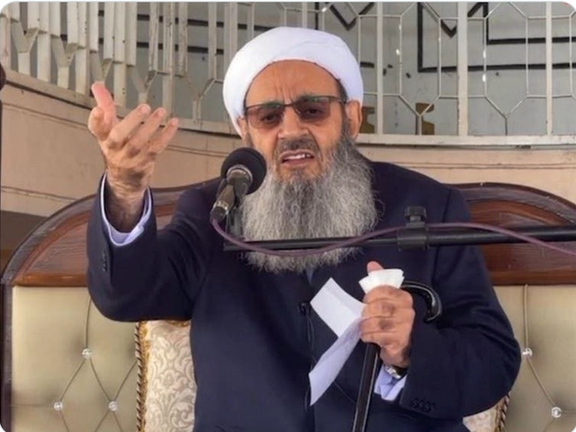
Renowned Iranian Sunni leader Mowlavi Abdolhamid has strongly rebuked the government's handling of a series of crises gripping the nation.
In a fervent address delivered during his Friday sermon in Zahedan, Abdolhamid condemned the regime's failure to address pressing issues such as medicine shortages, dust storms, water problems, and forest fires.
His remarks highlighted the urgent need for efficient water management, and in particular, the potential repercussions of Russia's closure of the Volga River entrance upon the fragile ecosystem of the Caspian Sea.
The outspoken leader referenced the diminishing water levels in the Caspian Sea, echoing recent statements by an Iranian environmental official who attributed part of the crisis to the closure of key entry points, particularly the Volga River.
The head of the Iranian Department of Environment, Ali Salajegheh, also commented on the adverse environmental effects of these closures on the Caspian Sea.
Abdolhamid also drew attention to the responsibility of the government towards these crises and decried what he saw as a lack of effective leadership. His criticism extended to the regime's handling of public demands, which he condemned as indicative of a "weakness of the system". Furthermore, he called for a holistic approach towards solutions and cautioned against the suppression of journalists and politicians, as well as capital punishment.
These pointed remarks from the Sunni leader come at a time of heightened tensions in Zahedan, marked by an increased military presence following a violent incident in September 2022, during which regime agents killed scores of innocent protesters.
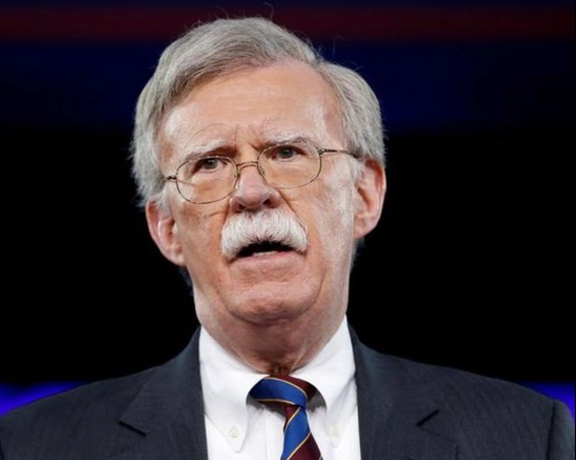
Former US national security adviser John Bolton said that the death of Iranian Supreme Leader Ali Khamenei could expose vulnerability and offer an opportunity for regime change in Iran.
Speaking at a Jerusalem Center for Public Affairs (JCPA) webinar titled "Supporting Iran’s Quest for Democracy and the Urgency of Europe Proscribing Iran’s Islamic Revolutionary Guards Corps" on Thursday, Bolton highlighted the unique window of opportunity that Khamenei's death could present for a democratic transition in the nation.
Bolton emphasized the delicate state of affairs in Iran due to the advanced age and recurrent health issues of Ali Khamenei, currently 84 years old. He noted that the absence of a clear succession plan within the Islamic Republic further exacerbates the challenges of maintaining stability during the transition of power. Bolton's analysis suggests that this critical juncture could be leveraged to weaken the influence of the Islamic Revolutionary Guard Corps (IRGC), thereby fostering a more conducive environment for democratic change.
"Pressuring the IRGC in the lead-up to and during this transition phase could expose its vulnerabilities," Bolton stated. However, he cautioned against complacency, warning that failing to address the IRGC's influence could empower the organization to exert even greater control during this transitional period.
Israeli Intelligence Minister Gila Gamliel, another prominent voice at the webinar, stressed the moral imperative of categorizing the IRGC as a terrorist organization. Gamliel urged the EU and UK to proscribe the IRGC as a means to counteract its role in terrorism and hostage-taking. She underscored that swift action is pivotal in preparing the path for a democratic Iran, allowing its people to experience freedom and self-determination.
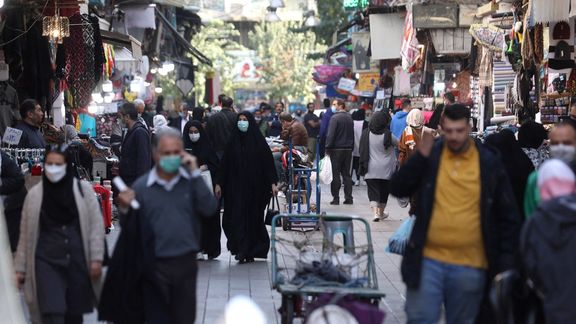
A former head of Iran's Planning and Budget Organization says economic crisis will inevitably lead to the collapse of the regime, as others also voice pessimism.
A prominent ‘reformist’ politician also argues that the current popular distrust in the government leads the authorities to use a security approach against the people.
At the same time, a former Deputy Intelligence Minister and Government Spokesman says despite the nationwide uprising that started in September 2022, there is no prospect for change and reform in the country.
Former budget chief Massoud Roghani Zanjani speaking in a Club House chat session that years of inflation and poverty have brought the popular dissatisfaction to a peak and laid the ground for protests in Iran.
Zanjani said that the current crisis is the outcome of clerics' intervention in politics and the conflict between elected and non-elected bodies in the government. He added that the non-elected bodies are where the clerics' power centers are.
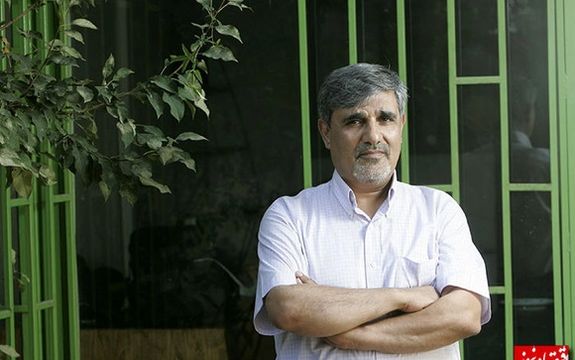
He further added that "When absolute power was given to the Supreme Leader in the 1987 revision of the Iranian Constitution, it was in fact similar to crossing out all other articles of the Constitution." He pointed out that since then, Ali Khamenei has undermined the Constitution by actions such as giving executive powers to the heads of the three branches of the government.
Zanjani said one of the reasons for the country's economic crisis is that Iran has two treasuries, one for the government, and another for Khamenei's office. He further charged that privileges given to the clerics has created an apartheid regime in their favor.
Meanwhile, prominent reformist figure Feyzollah Arabsorkhi said in an interview with Rouydad24 website that people's distrust of the government, has encouraged officials to use security measures as a tool against the people.
He added that what is going on in the parliament and the government is diagonally different from what people expect. Arabsorkhi said, "Just look at the government's views about the Internet and social media. It reflects the views of the hard core of the government about freedom of speech.” Under these circumstances, you cannot expect the people to trust the government when it tries all the time to restrict people's access to the Internet.
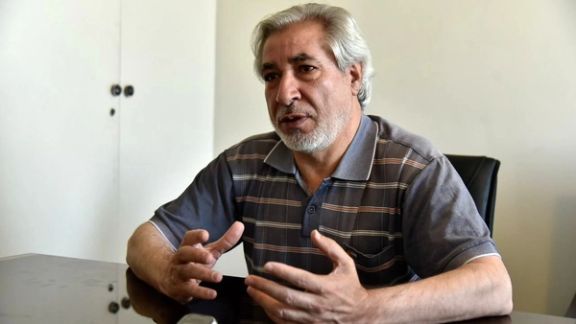
"People's distrust in the government and its efficiency are currently the biggest problems the authorities are facing," Arabsorkhi said, adding that "People do not believe what rulers say, and if the government wishes to correct this situation it should respond positively to popular demands and expectations.
He added that the hijab law that is currently being discussed secretly at the parliament without paying attention to the people's views and expectations is one of the examples why Iranians have lost trust in the government. The state television which could have acted as mediator between the people and the government acts so unilaterally that there is no trace of the people's demands in its programming.
Meanwhile, former government spokesman Ali Rabiei wrote in Etemad Online website that there is still no prospect for reforms and correcting mistakes made by the government despite several months of nationwide protests.
"On the contrary, in some cultural issues we see that the government is putting a step back," Rabiei said, presumably referring to compulsory hijab.
Rabiei insisted that failure to bring about a clear prospect for reforms in foreign and economic policies, and improve governance will adversely affect turnout in the upcoming parliamentary elections.
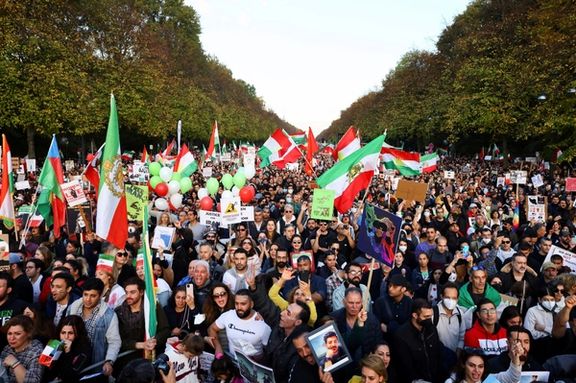
Germany issued a warning to Iranian activists critical of the Iranian leadership, cautioning them about the potential threat of cyber espionage.
Germany's Federal Office for the Protection of the Constitution (BfV) specifically highlighted the activities of the Charming Kitten online espionage group, which employs sophisticated tactics to gain the trust of its targets.
According to the BfV, Charming Kitten employs a multi-step process that begins with building trust through personal contact, eventually leading the victim to unwittingly expose personal data, including online contacts within Iran. The group employs spear-phishing tactics, using counterfeit messages that appear authentic to acquire sensitive information. The victims are then lured into online video chats where they are prompted to enter login details, providing the hackers with potential access to their online accounts.
The cyberattacks conducted by Charming Kitten have primarily targeted dissident organizations and professionals, including legal practitioners, journalists, and human rights activists both within Iran and abroad.
Past instances have revealed the group's involvement in phishing attacks against foreign embassy staff, experts, and human rights advocates. The group's activities are reported to have support from the government of the Islamic Republic.
Notably, Charming Kitten has previously targeted US officials and officials responsible for implementing sanctions against Iran, as well as infiltrating the personal emails of officials within the US Treasury Department. Human Rights Watch has also pointed to the group's involvement in targeting activists, journalists, diplomats, and politicians in the Middle East. The BfV's advisory underscores the critical need for increased cybersecurity awareness and vigilance among dissident activists, journalists, and professionals dealing with sensitive information and international matters.
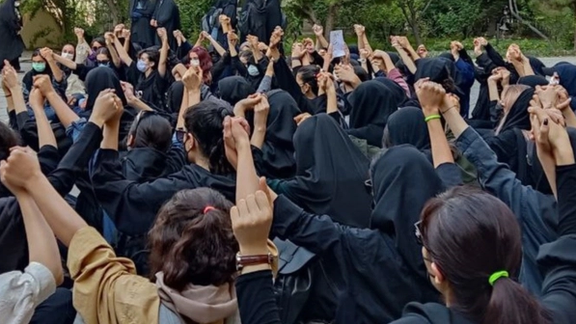
As the first anniversary of Mahsa Amini's death at the hands of the hijab police gets nearer, a wave of heightened security measures has surged across universities.
Reports have emerged that security authorities, under undisclosed identities, have reached out to several students including those from Tarbiat Modarres University. A total of 12 students have been summoned to report to the Ministry of Intelligence and sign pledge documents. The summoned students have not been informed of the rationale behind their summonses, and the legal foundation for these actions remains unclear.
Student union councils across the country assert that security is heightening as the first anniversary of Amini’s death approaches on September 16th.They insist that these moves indicate the regime's apprehension regarding potential student-led protests.
In a parallel development, sources have revealed that security institutions within the Islamic Republic have initiated a similar campaign of summoning individuals detained during last year's protests. These individuals have been coerced into pledging not to engage in any form of public or virtual activism during the second week of September, the time when Amini died a year ago. Failure to comply with these directives has been met with the threat of arrest.
A recent report from the United Nations High Commissioner for Human Rights disclosed that a minimum of 20,000 individuals were arrested by agents of the Islamic Republic during the revolutionary uprising, either for their active participation in the protests or for their support of the movement. Although some of these detainees were provisionally released on bail, their cases remain unresolved.